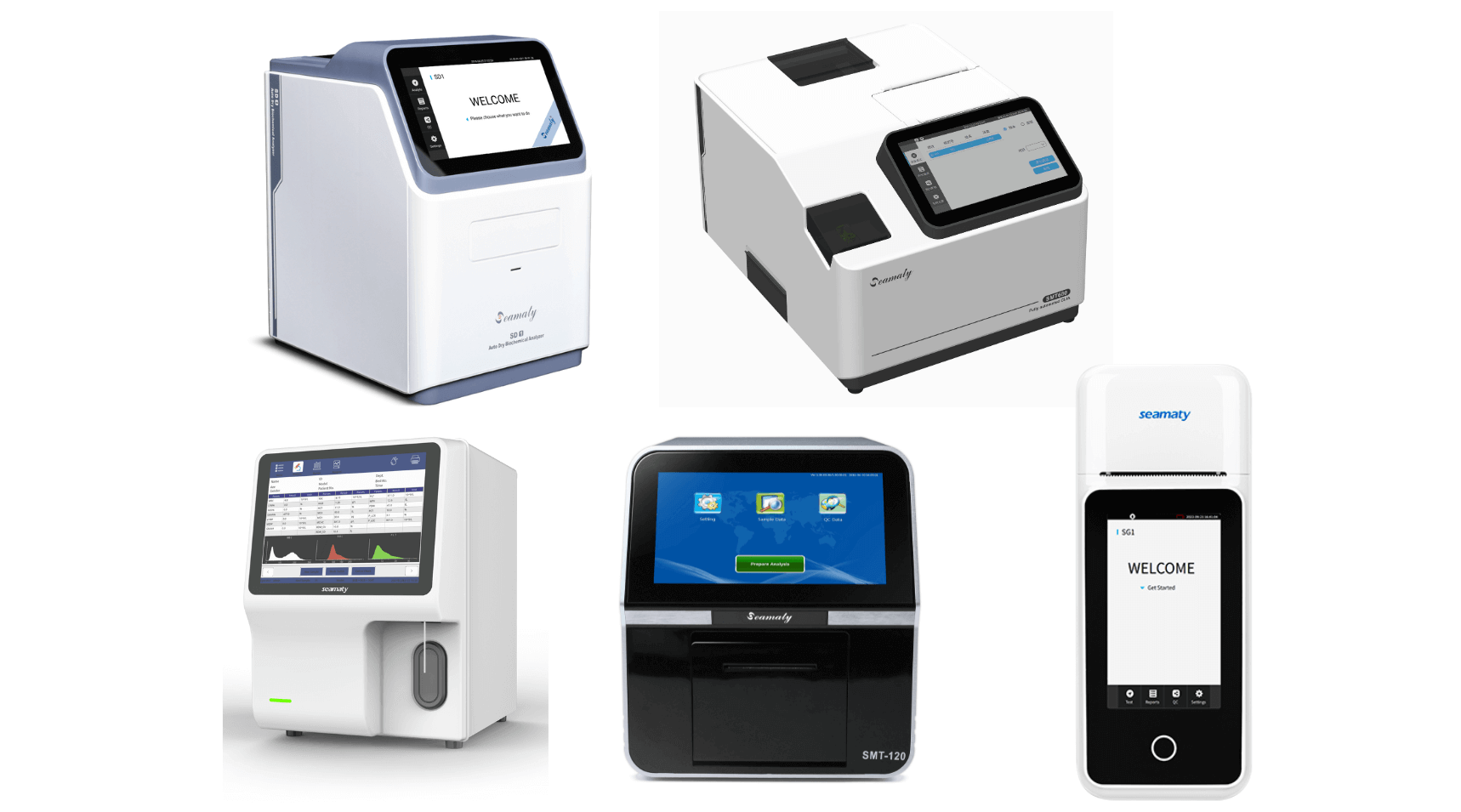release time:2023-12-06 14:14:08
For hospitals, clinical laboratories, or research facilities, selecting the ideal hematology analyzer is a critical decision that can significantly impact diagnostic efficiency and accuracy. To assist you in this important process, we've distilled the 8 key considerations into a concise guide to help you navigate the landscape and make an informed decision.
The first consideration revolves around aligning the features of a hematology analyzer with your specific application requirements. Choose between open and closed vial testing modes based on the complexity of your samples. While open vial testing ensures precision and quick results, closed vial processing is safer for operators, preventing direct contact with potentially hazardous samples.
Decide between 3-part and 5-part blood counting based on your clinic or laboratory's size and requirements. 3-part analyzers are cost-effective for basic needs, while 5-part analyzers offer precision and the ability to perform complete blood counts. Automatic flagging capabilities enhance efficiency by identifying abnormal cells, streamlining the diagnostic process.
Consider analyzers equipped with 3D VCS technology for accurate red blood cell analysis. This innovation provides detailed insights into cell size, internal structure, and additional data like cellular granularity and nuclear lobularity.
Budgeting is a crucial aspect of acquiring a hematology analyzer. Recognize these instruments as long-term investments and carefully assess the benefits of automation versus manual processes. Explore cost-effective alternatives, such as purchasing a refurbished unit from reputable manufacturers. Renting is also an option for sporadic blood counting needs, offering affordability and hassle-free maintenance.
When upgrading, consider selling your current analyzer to recoup some of the investment. Comparing distributor prices, taking advantage of promotions, and exploring used options can help you make a cost-effective choice without compromising functionality.
Thoroughly review your application demands to identify the features that provide the most value. Differentiate between 3-part and 5-part analyzers based on the white blood cell types you need to count. Modern analyzers come with algorithms for flagging abnormal cells, automating a challenging aspect of diagnostics.
Ask specific questions about the product's authorization, compatibility with your specimens, and its ability to detect the diseases or conditions relevant to your tests.
Understand the technologies employed in hematology analyzers to assess their functional capacities. Electrical impedance based on the Coulter Principle and flow cytometry utilizing lasers and fluorescent reagents are the primary methods. While impedance is effective, flow cytometry offers a more sophisticated approach, especially when integrated with fluorescence for accurate cell population identification.
Evaluate your laboratory's workspace and determine the necessary features and capacity for your hematology analyzer. Consider bulkier analyzers for heavy-duty operations and compact models for smaller spaces without compromising efficiency.
Consider the service life and maintenance requirements of the hematology analyzer. Prioritize models with multi-year warranties to ensure ongoing support and performance. Maintenance efforts play a crucial role in determining the longevity and performance of an analyzer. Choose models with reliable and highly-automated systems for minimal maintenance.
Assess the performance of your hematology analyzer using specific metrics. Precision, carryover testing, sample stability, and result comparison across similar analyzers provide insights into the reliability and accuracy of the instrument.
Opt for reliable manufacturers known for delivering high-quality equipment. Trusted brands include Beckman Coulter, Sysmex, Diagnostica Stago, Horiba and CDS.
As a budget-friendly alternative, consider the Seamaty SMT-50, a 5-part auto hematology analyzer. This compact and affordable option utilizes laser scattering technology for simplicity and reliability. Its integration of a built-in reagent cabinet in a small-sized design enhances practicality. Users benefit from an excellent experience with an intelligent feature that removes blockages, ensuring smooth operations. The analyzer provides accurate results through its exceptional algorithm, hardware, and liquid circuit design. Its ultra-low cost of operation, requiring only three types of reagents, makes it a cost-effective choice for those on a budget.
To wrap up, for selecting the right hematology analyzer, you need at least consider these 8 factors: the product feathers, your budget, your application demands, the products’ functions and technologies, the workflow and size of your lab, the products’ performance, and the manufacturers. These key considerations guide you through the decision-making process, helping you confidently choose an analyzer that aligns with your application demands while ensuring long-term reliability.

Recommended further reading:
1. Why Seamaty's Automated Hematology Analyzers are the Best Choice for Your Medical Practice
2. What is a Hematology Analyzer Used For?
3. Manual Blood Cell Counting Vs Automated Hematology Analyzer
4. Blood Chemistry Analyzer vs. Hematology Analyzer: What are the Differences?
5. Biochemistry Analyzer vs Hematology Analyzer vs Immunoassay Analyzer: What's the Difference?
6. 3-Part VS 5-Part Hematology Analyzer-CBC Machine

2024-09-29
Discover why Seamaty is the ideal POCT analyzer supplier for your healthcare needs. With innovative diagnostic platforms, global reach, and a commitment to quality, Seamaty offers cutting-edge solutions for medical and veterinary diagnostics.

2024-05-15
Discover the future of lab diagnostics with the fully automated microfluidic dry biochemical analyzer. Combining speed, accuracy, and ease of use, this cutting-edge device is ideal for hospitals, labs, and health centers, providing rapid and reliable biochemical testing with minimal maintenance and cost.

2024-01-08
Looking for the best clinical chemistry analyzers for small to mid-sized laboratories in 2024? Check out our list of the top 9 analyzers, including options from Seamaty, Roche, Siemens, Ortho Clinical Diagnostics, Abbott, Beckman Coulter, and Olympus.